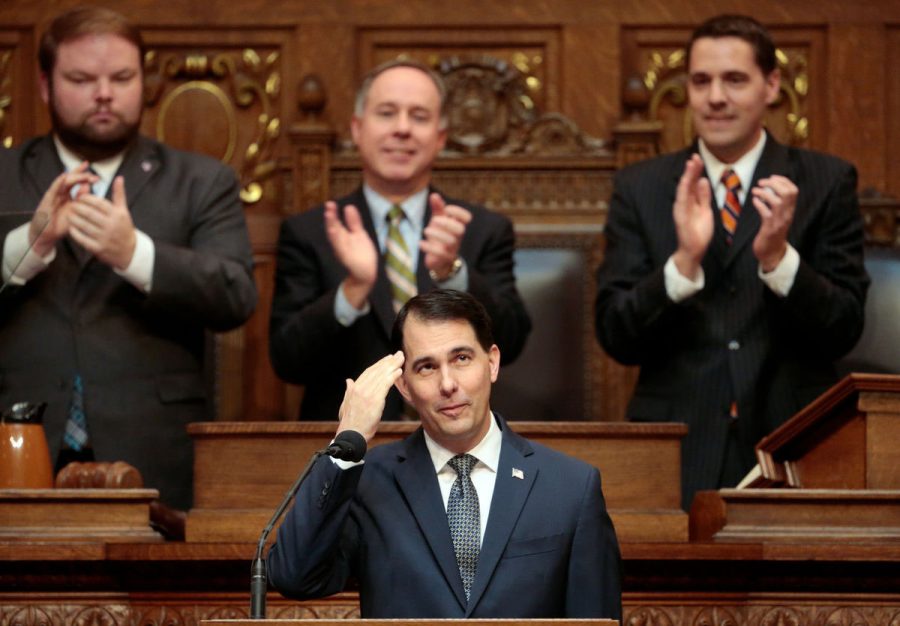Scott Walker’s UW System tuition cut proposal raises concerns about funding
More stories from Rachyl Houterman
Photo by SUBMITTED
Governor Scott Walker delivered his tuition-cut proposal during his State of the State Address on Jan. 10.
Governor Scott Walker surprised many legislators on Jan. 10 during his State of the State address when he said he wants to cut in-state tuition for the UW System in the upcoming 2017-2019 state budget proposal.
“I am pleased to announce that our 2017-2019 state budget will do more than just freeze tuition,” Walker said. “We will actually cut – that’s right, cut – tuition for all Wisconsin undergraduates throughout the UW System.”
Walker said he believes the proposed cut would make education more affordable for undergraduate students attending school in Wisconsin, arguing that the past four years of tuition freezes have not been enough to help college affordability.
The proposed tuition-cut has some lawmakers and officials concerned about how the cut would be funded after the loss of $250 million in funding from the previous budget. Recently, the UW System asked for an aid increase of $42.5 million in the upcoming 2017-2019 state budget.
Rep. Dana Wachs, (D-Eau Claire,) is one of a potential group who are apprehensive about Walker’s recent proposal.
“It’s like walking up to the store and saying ‘Today, we’re going to drop the price by X amount.’ without telling the owner of the store. I mean, O.K. So how does the rest of the overhead work if you’re dropping the sales price of the product?” Wachs said to Eau Claire’s WEAU 13 News.
During Walker’s visit to UW-Eau Claire on Jan. 11 to discuss his tuition cut proposal, he reassured administrative officials the money lost in the tuition cuts would be cycled back to the universities through state funding.
“That dollar amount will be added to the overall base of the state budget and attributed to each of the campuses,” Walker said during his visit.
According to Walker’s proposal, schools would receive additional funding based on performance. Walker pointed to UW-Stout, stating even during the height of the recession, it “had about a 97 percent graduate placement rate of their graduates being employed, and those are the sorts of things that we think matter.”
Walker left Eau Claire without providing more detail to his proposal, but assured the public he would have more information to share during the budget assembly next month.
Eau Claire Chancellor Jim Schmidt released a statement saying the business community, the public, the Governor, the Legislature and the Board of Regents all agree “assuring both affordability and quality is a priority.”
“We remain committed to working with the UW System and our legislators to assure a strong UW System that meets the educational needs of our region and state,” Schmidt said.
Walker and Schmidt share the same goal of getting students to graduate in four years in order to reduce costs on their part. The sooner they are gainfully employed, Walker said, the better.
Freshman actuarial science student Jenny Miller said she would like to see the in-state tuition cost cut but also acknowledged its possible consequences.
Despite Walker promising to compensate the lost tuition through state funds, Miller said, “If it doesn’t all get brought back, the school might not be able to fund all of its operations.”
Maddy McPherson, an undeclared freshman, also agreed cutting in-state tuition would be beneficial for students. Like Miller, she expressed concern over how it affects the schools, also expressing her skepticism about Walker’s intentions.
“I don’t know if Scott Walker really will give (the money) back to the schools,” McPherson said. “But it would be nice if he did.”

